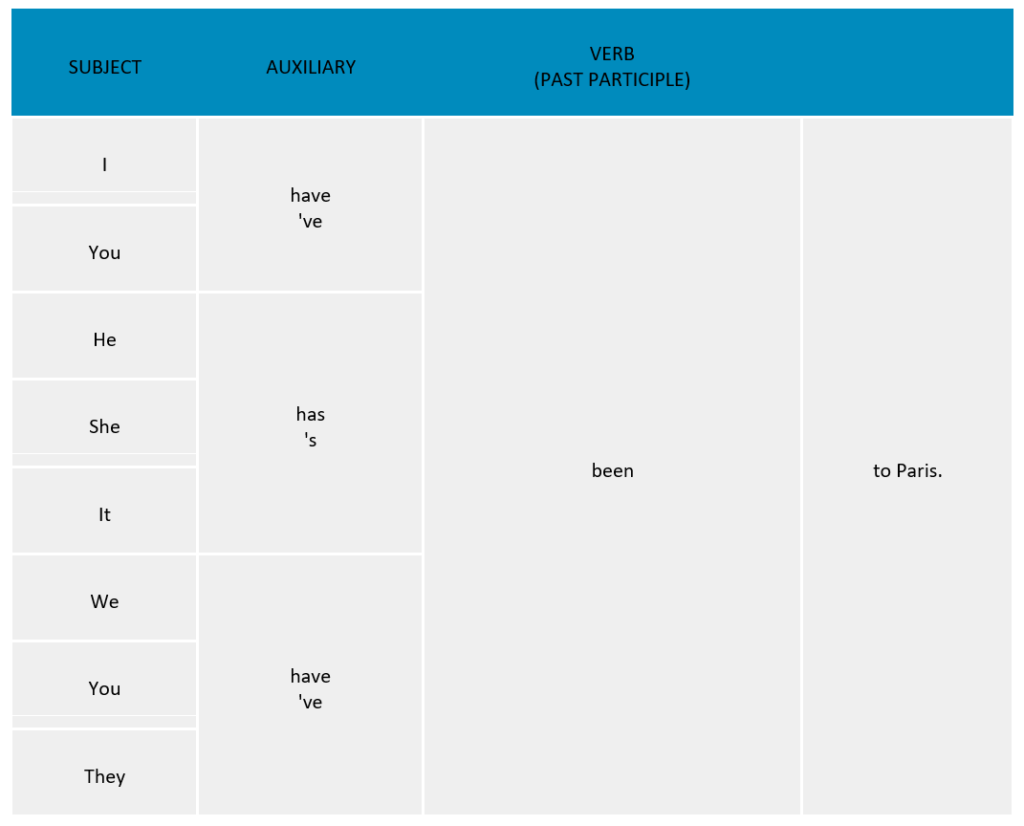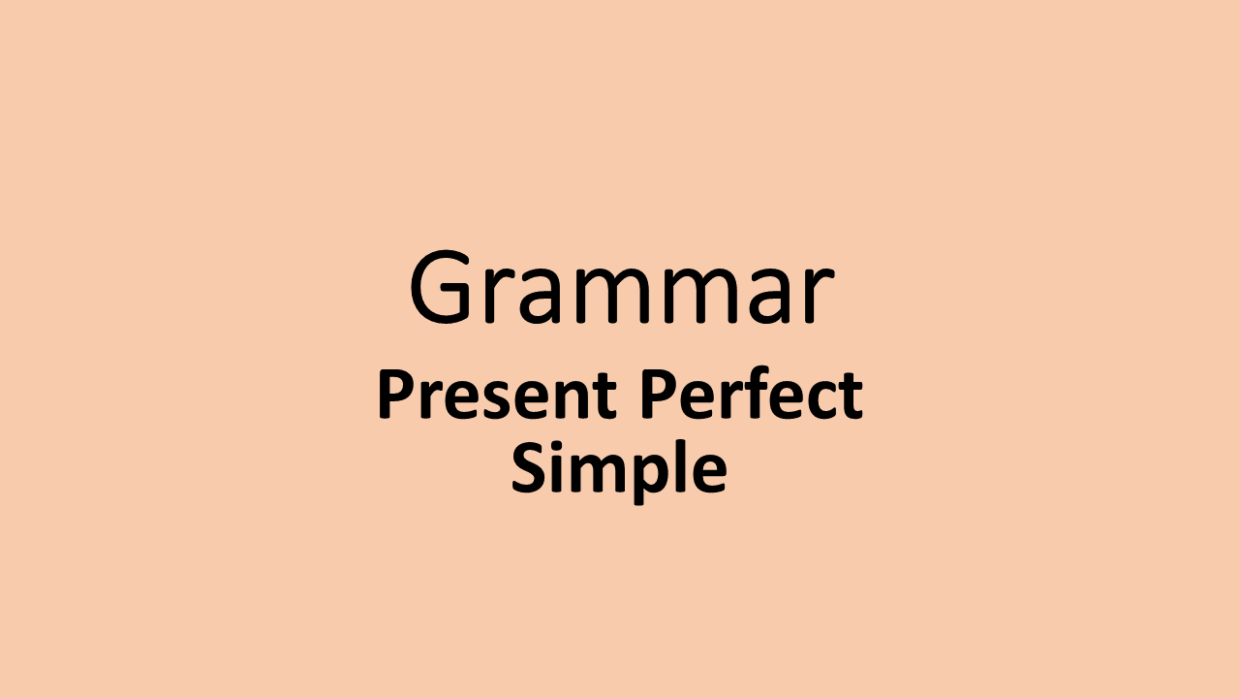The present perfect tense is also used to express actions that started in the past but continue to the present. The time of the action is before now but it is not specified, and we are often more interested in the result than in the action itself.


Forming affirmative sentences in the Present Perfect Simple

Forming negative sentences in Present Perfect Simple

Forming questions in Present Perfect Simple

Using Present Perfect Simple
The Present Perfect simple is used to express:
- actions of duration that occurred in an unspecified time in the past
- actions that started in the past and continue to the present
- actions that started in the past and finished recently
Examples of Present Perfect Simple for action that began in the past and continue in the present. These actions are also likely to continue in the future.
- I have spent 10 years studying penguins.
- Lorna has worked as a nurse for years.
- We have owned this house since 1974.
Examples of Present Perfect Simple for actions that started in the past but stopped recently. These actions began in the past and were completed before now. It is important to note that the completion of these actions puts a focus on the result of the action in the present.
- I have spoken to him about it.
- She has called me to talk about it.
- We have forgotten to bring the books to school.
Words that are frequently used when forming Present Perfect sentences
We often use for and since to talk about a present situation that began at a specific point in the past and continue in the present. We are looking back from the present to a point in the past.
For refers to periods of time, e.g. three years, four hours, ages, a long time, months, years.
Examples:
I have lived in Amsterdam for three years.
I have lived in Prague for a long time.
Since refers to a previous point in time, e.g. last Monday, last year, 1987, yesterday.
Examples:
He has lived in Berlin since 2012.
She has been traveling around Europe since March.
We often use expressions with for and since to answer questions that start with „How long…”
Examples:
How long have you lived here?
Since 5 July.
We use yet in questions and negative statements to refer to things we intend to do in the future, but which are not done.
Examples:
Leave my cup on the table, please. I haven’t finished my tea yet.
Have you been to Thailand? No, not yet.

We use already when we want to emphasise that something is done or achieved.
Examples:
He has already booked his boat trip.
I’ve already cleaned the bathroom.
We use still when we want to emphasise that something we expected to happen continues not to happen.
Examples:
She still hasn’t apologised.
He still hasn’t paid the bills.
American English
In American English, the past simple is often used instead of the present perfect simple. Americans often use already and yet with past simple.


